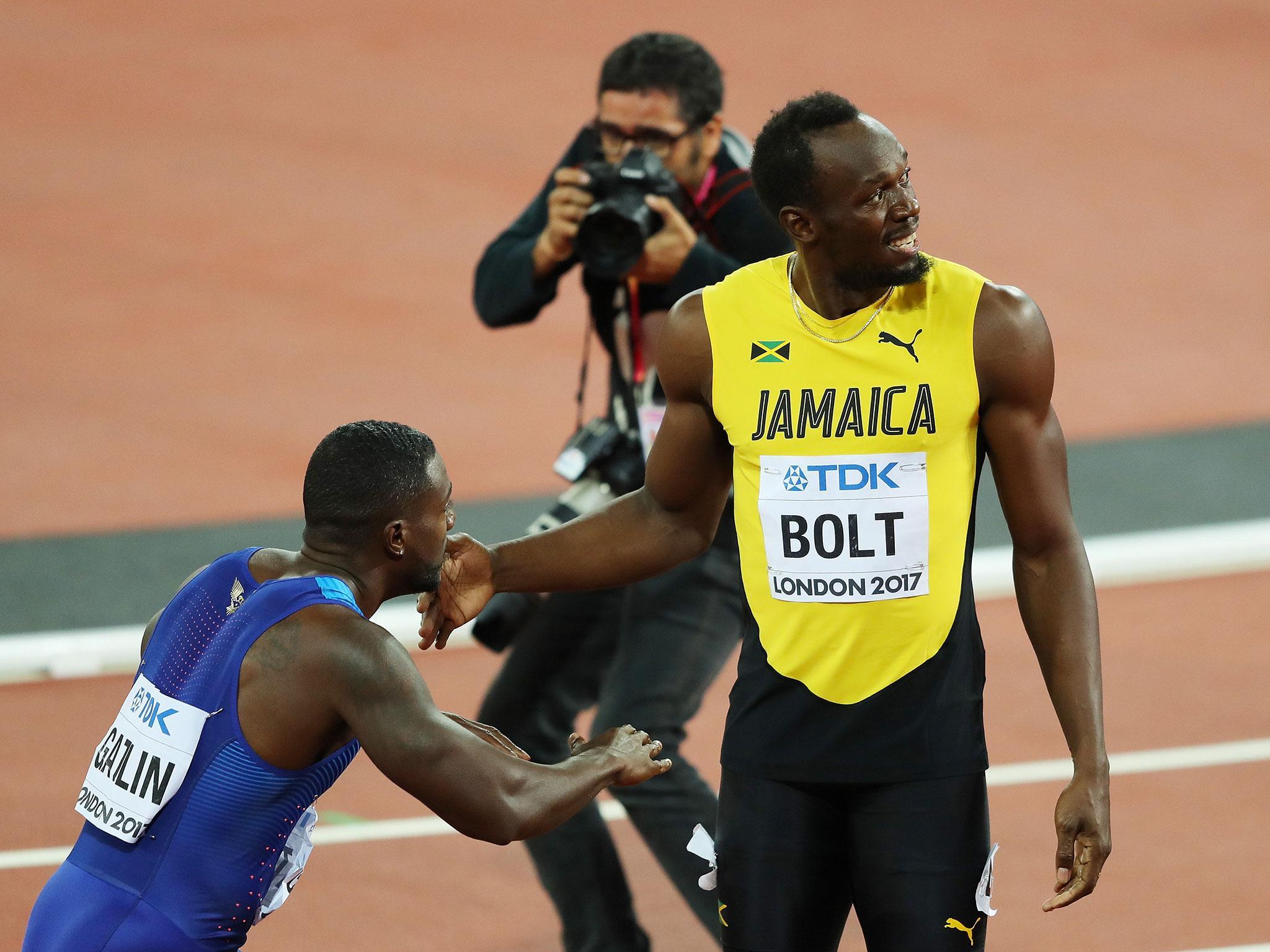Usain Bolt's defeat last night is a reminder that in sport, just like in politics, the best man doesn't always win
Anyone who turns to sport for an uplifting morality tale of virtue rewarded is begging for disappointment, and this was no exception


If any athlete ever deserved to be immortalised for exquisitely defining his era, it’s the one who burned up a London race track for a fraction under ten seconds on Saturday night.
I refer, of course, to Justin Gatlin. The new 100m World Champion stands tall and proud today as the finest metaphor for his age that global sport has yet produced.
Dramatically, it is true, most viewers will have taken his shock win over a bronzed Usain Bolt as a bone-chilling anticlimax. Anyone who spent the previous two hours with the BBC’s typically smug, lazy, cliche-infested build-up is forgiven for having come to regard the romantic Hollywood ending as inevitable.
Ably assisted by a countdown clock ticking portentously down to Bolt’s solo swansong, Gabby Logan and chums seemed certain that his triumph was only a matter of time. The tiresome obviousness of the narrative – tears of joy will drench the globe as the greatest ever goes out in one last lightning burst of glory – was no bar to its constant repetition.
Now I love Usain Bolt as much as most people for his charm, grace, good humour, and above all his historically unrivalled gift for running dismayingly fast. Back when Jamaica’s turbo-charged stick insect was dismantling world records at will, his insouciant genius that allowed him to slow and glance mischievously from side to side over the last 20m had me leaping off the sofa, staring at the screen in cartoon character disbelief.
But that was then. As Friday’s sluggish heat and Saturday’s first defeat in a championship semi-final suggested, time was finally catching the man who used to make such a fool of the stopwatch.
The trouble is that a narrative, once embedded in the collective media consciousness, can’t be penetrated by such flimsy factors as visual evidence and statistical fact. Even if Bolt was several metres slower than at his peak, even if the guy who once clocked 9.58s was struggling to break ten seconds, that narrative was immovably built on the belief that some benign cosmic law dictated he must win his last individual race. That’s what destiny and natural justice demanded.
But life is seldom that cute. Very occasionally, a script binned for being too cheesy even for Hollywood seeps out of the studio exec’s recycling bin, and into reality. Roger Federer’s recent renaissance at a geriatric 35 is the best example in memory, if not ever.
By and large, however, anyone who turns to sport for an uplifting morality tale of virtue rewarded is begging for disappointment, if not on quite such an epic a scale as Saturday night’s.
Even if Bolt had finished second to the 21-year-old American Christian Coleman, Gabby and the gang could have finessed their narrative into one about Old Man Bolt leaving in the ideal way, by safely passing the sprint relay baton to the next generation. It’s almost as good a story as him snaffling yet another gold. In a way, it’s better.
In the event, the silver medal was denied them, just as it was denied Bolt. Gatlin’s name had barely been mentioned during the interminable build up, and when he jogged on to the track, no one took the trouble to explain the boos to those unaware that in 2001 he was banned for two years (reduced on appeal to one) for taking amphetamines; and then for another eight (again halved on appeal, to four) for testosterone in 2006.
What we actually saw, in place of Bolt’s tear-jerking swansong, was a jerk tearing up the track quicker than him. As a stupefied silence enveloped the stadium, lead commentator Steve Cram ought to have identified this as the worst cataclysm to hit athletics since Ben Johnson was disqualified (steroids) at Seoul in 1988.
At the last World Championships, two years ago, when Bolt edged out Gatlin on the line, Cram caught the mood brilliantly with: “He saved his title, he saved his reputation, he may have saved his sport.” This time, he ignored the clinical logic dictating that the reversal of that result may have doomed his sport. Along with everyone else the BBC hired for their expertise, he shirked that duty to the truth.
But rather than dwell on the latest blow to a sport that has suffered a chronic credibility deficit for decades, or fixate on BBC Sport’s slide from journalism into a simpering public relations annexe to the sports it covers, we must focus on the positives.
Justin Gatlin did more last night than puncture the saccharine bubble of Bolt-worship which blinded the pundits to his frailty. He taught anyone too young or naive not to have learned it already that sport is not some magical fairyland where the right results come about because they are right.
If what you felt when Gatlin crossed the finish line was a small but piercing echo of the numb emptiness experienced on the nights of the Brexit referendum and 2016 US election, no wonder. In sport, as elsewhere, cheats and liars win even when almost everyone knows them for liars and cheats. In the age of Brexit and Trump, could you wish for a more fitting world champion?



Join our commenting forum
Join thought-provoking conversations, follow other Independent readers and see their replies
Comments